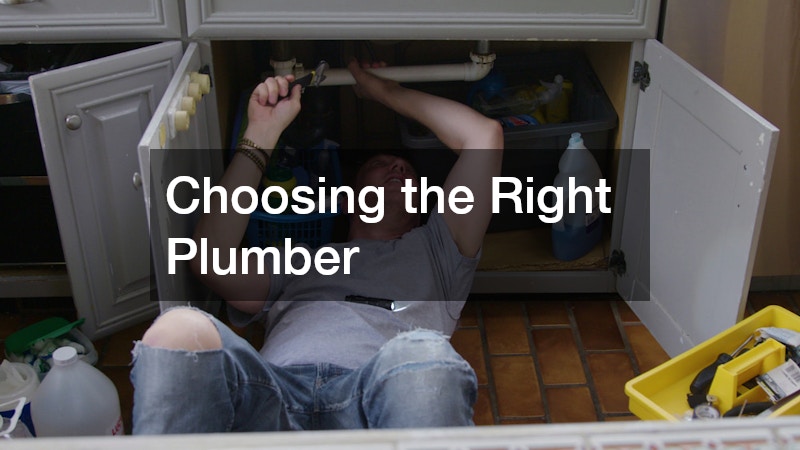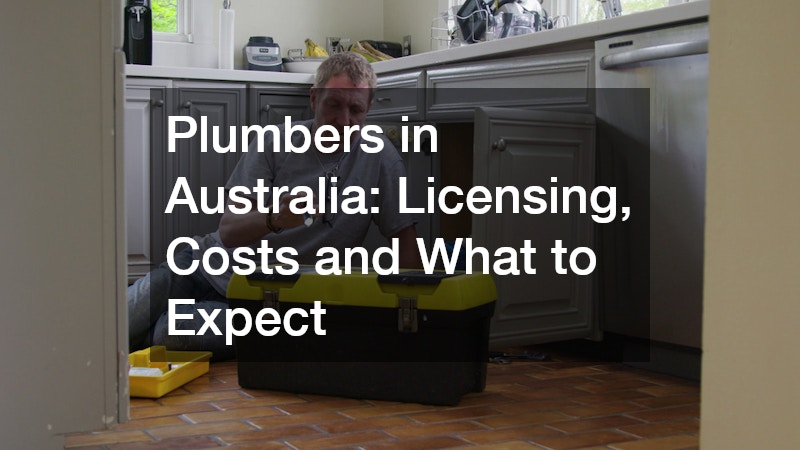When it comes to keeping homes and businesses running smoothly, plumbers play an essential role in Australian infrastructure. From fixing leaky taps to installing complex pipe systems, their work ensures access to safe, clean water and effective wastewater disposal.
Whether you’re planning a renovation, building a new home or simply dealing with a plumbing emergency, understanding licensing requirements, expected costs and the service process can help you make informed decisions and avoid costly setbacks.
Licensing Requirements for Plumbers in Australia
Hiring a licensed professional is not just best practice—it’s the law. In Australia, dunny divers must be licensed to carry out most types of work, including water supply, drainage, gas fitting, roofing (stormwater) and sanitary plumbing. Licensing requirements vary slightly by state and territory, but all jurisdictions maintain strict standards for qualification and training.
To become licensed, pipemen typically need to complete a Certificate III in Plumbing, followed by an apprenticeship of around four years under the supervision of a qualified tradesperson. After meeting education and work experience requirements, they must pass assessments administered by local authorities or industry regulators such as the Victorian Building Authority (VBA) or NSW Fair Trading.
Some states also require additional endorsements or registrations for specialised work. For example, gas fitting usually demands a separate qualification. It’s important to check your plumber’s licence status through official government websites before starting any job. Engaging an unlicensed practitioner may not only lead to subpar work, it can also void your insurance or breach building regulations.
The Cost of Hiring a Plumber
Plumbing costs in Australia vary widely based on the type of job, its complexity, location and urgency. Minor tasks like replacing a tap washer or unblocking a sink may cost between $80 and $150, while larger installations or repairs can range from $500 to over $5,000.
Here’s a general overview of common plumbing services and associated price ranges:
- General call-out fee: $80 to $160
- Leaky tap or toilet repair: $100 to $250
- Hot water system installation: $1,200 to $3,500
- Bathroom renovation plumbing: $1,500 to $5,000+
- Blocked drain (CCTV inspection + clearing): $300 to $600
Emergency services—especially those required after hours or on public holidays—attract premium rates, with some dunny divers charging double their standard hourly rate in urgent situations.
Pricing transparency is key. Many reputable plumbing businesses offer itemised quotes before commencing work. This allows customers to compare costs and understand where their money is going. Always ask about call-out fees, hourly rates and parts before committing to a job. Additionally, keep in mind that quality plumbing work may come at a higher price, but it often saves money in the long run by preventing future issues.
What to Expect When Hiring a Plumber
Knowing what to expect can make the process of hiring a plumber smoother and more effective. Most jobs follow a clear step-by-step process, beginning with the initial consultation. You might contact the plumber by phone or through an online request form. Depending on the issue, they may need to inspect the site before giving a detailed quote.
For scheduled projects like renovations or new installations, the plumber will typically coordinate with other tradespeople to ensure plumbing work aligns with building timelines. If it’s an emergency, such as a burst pipe, they’ll prioritise rapid arrival, containment of the issue and a temporary or permanent fix depending on the circumstances.
Professional pipemen come equipped with the necessary tools and replacement parts. They should treat your home with respect—wearing protective covers over boots, cleaning up after the job and clearly communicating what was done and why. Upon completion, they’ll provide a compliance certificate where required, especially for regulated work like gas fitting or drainage systems.
It’s also worth asking about warranties. Many licensed pipemen offer guarantees for workmanship and parts, offering peace of mind that the job was done properly.
Choosing the Right Plumber

With thousands of dunny divers operating across Australia, how do you choose the right one? Start by checking their licence and insurance coverage. Then look at customer reviews, which can offer insights into reliability, punctuality and service quality.
Ask for recommendations from friends or local community groups and don’t hesitate to get multiple quotes for comparison. A good plumber will be upfront about availability, pricing and any potential complications they foresee.
From emergency repairs to major installations, licensed plumbers are vital to maintaining safe and functional plumbing systems in Australian homes and businesses. While the cost of hiring a professional can vary, transparency, communication and licensing are key indicators of a trustworthy provider. By understanding what to expect and making informed choices, you can ensure quality workmanship that stands the test of time.
